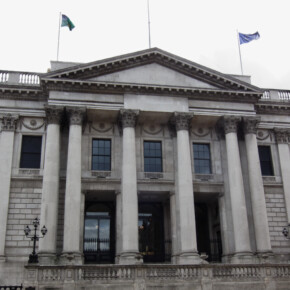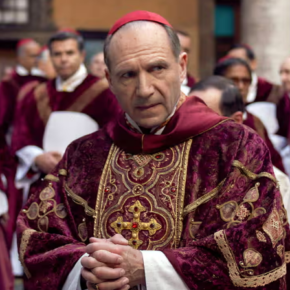The Settlers brings the western back to its uncomfortable roots
Mike Finnerty 08 Feb 2024
As a genre, the western pulls no punches in its depiction of how the west was won by trampling over the bodies of the people who founded it.
The Settlers makes that conceit the central thesis.
Chile’s submission for this year’s Oscars, The Settlers is a deconstruction of the cowboy mythos and has more in common with Killers Of The Flower Moon than it does Sergio Leone.
Telling the story of a Scottish soldier, an American mercenary and a Chilean Mestizo, The Settlers depicts the extermination of the indigenous people who lived at the very bottom of South America.
Framed as a hunt for a new land, The Settlers shows just how brutally and savagely white colonial forces erased the natives at the end of the 19th century.
The Settlers delves into the uncomfortable truth of the western genre; the iconography of the heroic cowboy or the brave settlers traversing across epic landscapes often ignores that white settlers portrayed themselves as the hero at the expense of the natives who were there to begin with.
The film is the debut of director Felipe Gálvez Haberle and it is apparent that he has studied the classics.
In spots, the film is evocative of the films of Peckinpah, the dramatic landscape shots recall the best of John Ford, and the interpersonal drama is reminiscent of his compatriot Pablo Larraín.
One exceptionally shot sequence sees a massacre carried out under a thick mist, turning the film more into more of a horror.
The spirit of Peckinpah hangs over this film, and while this usually hinders a film, The Settlers takes it in its stride.
A lot of the power of The Settlers comes from just how utterly deplorable the main characters are, and the audience has no choice but to be stuck with them.
There are no Leone-style high noon shootouts, Clint Eastwood is not the hero, Kevin Costner is not the handsome Hollywood star we are there to root for; The Settlers is grim and unforgiving.
For a film that runs under 100 minutes with credits, the film is curiously paced.
A lot of The Settlers is spent sitting in the masterful mood and tone established by the film, and it manages to feel claustrophobic despite being set in the great outdoors.
The pacing may test some viewers, and there is little for the audience to hold onto in terms of heroes and villains, but it is a rewarding film in a peculiar way.
You don’t walk out of The Settlers with a sense of joy or satisfaction that the hero saved the day, you finish watching it with a pang in your stomach.
A great film challenges you, and The Settlers does just that – you leave the film feeling stimulated.
Films like this and The Zone Of Interest get into your bones and make you feel something that most movies struggle to convey.
One striking part of the film has the natives pose for photos, not in their traditional clothing, but rather the clothes of the people attempting to colonise them.
Seeing the erasure of a native culture at the behest of people who just happened to storm in with guns and horses is tough to watch, but a necessary reminder.
Like Killers Of The Flower Moon, it makes for difficult viewing, especially knowing that this injustice is very much a part of world history and still happens in parts of the world today, but that lends The Settlers a lot of power.
John Wayne and Gary Cooper aren’t the heroes here; The Settlers flips the script on what to expect from the western and holds a mirror up to the tropes and cliches that made it famous.
The Settlers is an instant classic addition to the western genre, and we have every faith that Felipe Gálvez Haberle will go on to have an esteemed career behind the camera telling stories of immoral people in immoral times.











